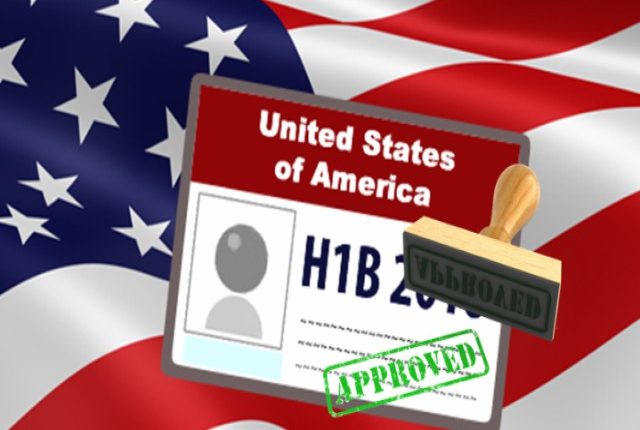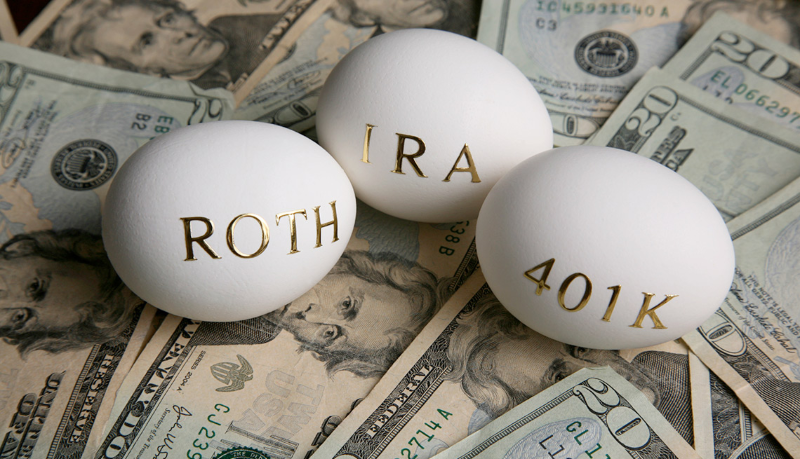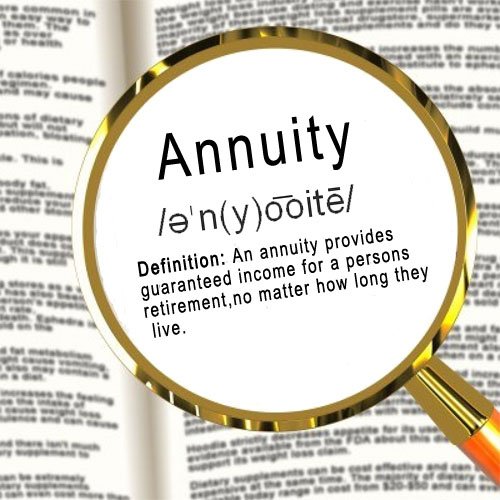According to the general definition of the middle class in the United States, a Chinese person who obtains a typical H1b position in the United States is basically a middle class immediately — in most cases, the corresponding pre-tax annual salary should start at 50k (such as entry-level accounting personnel) , Until more than 200k (such as a senior computer scientist in Silicon Valley).To know,The per capita GDP of the United States is "only" more than 5 dollars, The median disposable income of each household is "only" more than $5.
If you are suspicious, you can点击 这里訪問American Life Insurance Guide©️PostedIncome calculator released by the Pew Research Center in 2020, Can help you calculate immediately,Your income, rank and rank in your area.

Because the social system is very different from that of China, for the middle class, the "financial management" in the United States is much simpler and more straightforward than the domestic situation of mixed domestic dragons and snakes, because the market and regulations are very mature, and the choices are very straightforward.When it comes to financial management, ask a few more professionals and go to Google more. People who are fooling around in the financial market will immediately take action.
The following financial management assumes that this Chinese is likely to settle down in the United States and live a lifetime.
In addition, the income figures involved in the following are approximate figures, please make reasonable adjustments according to your place of residence.Such as,Bay areaIt is obviously different from the situation in West Virginia.
First of all, we draw a key point:
All financial/investment targets,The five most important indicators are income, risk, liquidity, taxation arrangements, and other restrictions.There is no investment/investment product in the world, and all five indicators are perfect, such as "high yield/low risk/high liquidity/tax incentives/no investment restrictions".Again, no.Any kind of investment/investment product has its own trade-offs around these five indicators.
For the vast majority of the lower middle class (50k-100k),"Financial management" is actually almost equivalent to "retirement."One thing more tragic than "dying to soon" may be "living too long".If you are able to plan your pension plan adequately, then you will hardly have any spare money left — I often faintly feel that this is the perfect result of the superstructure of the United States: the most extensively covered group of the population People continue to produce new money to support themselves and the country, and when they finally leave, they can't leave any old money for the next generation to enjoy.
The income that an American can get after retirement is basically three yuan:
1. Social Security / Social Security Pension — Similar to our country’s social security pooling account, it was created by President Roosevelt in the United States during the Great Depression.Currently in a precarious state, the account has been unable to make ends meet for N years, similar to the SS Tax you are paying to support the retired elderly.To put it simply, relying on the government to provide for the elderly is an unreliable thing for people in most countries.
(>>>Recommended reading:Who does the United States rely on for retirement?Why don't you count on Ugly Truth, the government to provide for the elderly? )
2, The legal distribution of various personal accounts — Similar to my country’s commercial pension insurance, such as the 401k provided by the company and the Roth IRA account created by itself,Annuity Insurance, And various financial products.
3. Pensions for individual governments/schools/institutions (Pension) — Similar to the "retirement" that our parents' generation received after retirement, this is not available in most companies.
In this way, the only thing we can grasp is the second type 2, personal accounts.
After joining the company, the company's HR will provide you with a benefit plan from the company's sponsor, the bulk of which is the so-called 401k.This is actually a Mutual fund, or even your own DIY portfolio of individual stocks.
The so-called "401k" is actually only the chapter number of the Revenue Code of the Internal Revenue Service (IRS).In the essence of a mutual fund, the IRS provides you with a "tax arrangement" that is different from the general mutual fund:You do not have to pay capital gains tax every year during the period of investing and holding a 401k accountHowever, before the age of 59 and a half, you cannot withdraw the money in this account (with exceptions, skip it), otherwise you will have to pay capital gains tax and an additional 10% penalty tax.

The additional benefit of 401K is that serious companies will give you a certain percentage of "match".For example, if you put 3% of your monthly salary in your 401k, the company promises to put 3% in your 401k account.Behind this is naturally the company's intention to attract talents. Many people think this is the so-called "free money".But more is the tax planning needs at the company level.
In short,If a person does not know what percentage of his salary should be used to vote for 401k, at least he must get the company’s "free" match — If the company says it can match 3%, you also choose 3%, which means that your monthly 401k new investment is 6% of your monthly salary; and if you choose 1%, the company will naturally only give 1%, then Your monthly 401k new investment is only 2% of your monthly salary, which is equivalent to taking 2% less free matches from the company.
The limitation of the 401k account is that the benefits of the tax arrangement provided to you by this IRS cannot be enjoyed unlimited, and can only be enjoyed within a certain limit each year.In 2020, this limit is $19,500 per year.
Another common benefit of choosing from a company is "discounted company stock" and various options.Simply put, for example, the market price of your company’s stock is $10 per share, and the company allows you to buy company stocks at $8.5 per month, which is equivalent to earning $1.5 per share for free at the moment (in reality, there may be a restriction period; In addition, why the 15% discount is the company tax content, skip it)
In educational institutions, such as universities, "401k" has another name, called "403b"-there is almost no difference between the two except for the different names.
If a company’s welfare plan does not have a 401k (common in small companies), you can choose to open your own pension account, called "IRA" (Individual Retirement Account).Its operating mechanism and taxation arrangements are not much different from 401k.
Finally, there is a concept that many people may be unfamiliar with:
Annuity/annuity/annuity/annuitize
This concept is actually not difficult to understand. Strictly speaking, 401k is just "pension", not "endowment insurance"-the money you save yourself will be spent on your own after retirement, and it will be gone after you spend it. There is no "insurance" part.andSo-calledpension, Can be regarded as the real "endowment insurance" — The money you save yourself, and at the same time attach a guarantee agreement with the investment manager: From how old I am, you pay my XXX pension every year until my death.
to be honest,The "insurance" function of annuity is the opposite of life insurance. To put it crudely, it is to hedge against such a risk:Living Too Long/Living too long.
That is: the money is spent, the person is not dead... There are mainly two specific forms:
1) Your 401k/IRA may itself be an annuity, that is, it is not telling you an account balance after retirement, but a guarantee of how much money you will get every month after retirement until you die;
2) You can purchase/convert your 401k/IRA, or other assets, into an annuity, which is called "annuity".

There must be an analogy: you can think of an "annuity" as a self-funded pension operated by a private company.
to sum up:401k/403b/IRA is only a tax arrangement based on the nature of mutual fund.Compared with mutual funds, they can choose to invest with pre-tax income when investing (or after-tax income, but they do not pay tax when receiving after retirement, called Roth type), and do not have to pay capital gains tax during the holding period, but Limited liquidity (59 and a half years old), limited investment amount (upper limit of 19,500 per year/2020)
Naturally, similar to mutual fund, you can choose different mutual funds according to your own income and risk preferences to be your own 401k "stubborn" — if you want, you can even get a portfolio of your own as a 401k "Fun Er", even though the individual does not support anyone to commit this kind of nerve.Those who like high-risk and high-yield prefer stocks; those who like low-risk and low-yield prefer bonds. It's very simple and straightforward.
Insurance that provides basic protection
For a middle class with an annual income of 50k to 100k,In addition to pensions, all that can be done is all kinds of insurance.In fact, this should be said before the pension, after all, various insurances are used to "cover the bottom".

What is "pocket bottom"?
For example, if you don’t have medical insurance at all, regardless of how much money you’ve worked so hard to save, if you have a “small illness”, the money you saved in one year is probably gone; if you have a “serious illness”, XNUMX% of your family will go bankrupt. .
Another example is life insurance (here only refers toTerm life/term life insurance), if you hang up unexpectedly, your husband/wife/baby's life may not be able to sustain, the mortgaged house may also be taken away, and your domestic parents relying on your income in the United States to support the elderly, the financial situation is estimated It's too choking.
Another example is some other small insurances, which are still the foundation of "financial management" that cannot be ignored.Such as Disability, if it doesn’t, if you get injured and can’t work for a long time, the financial impact on your family will be even greater than if you die, because you are still alive, and you have to eat and see a doctor. Another example is car insurance. , Especially if the responsibility lies with you and the other party is injured, you will also have to pay for bankruptcy; another example is housing insurance. Almost all wooden houses in the United States are wooden houses, you know...
Fortunately, the operation in this part is very simple and straightforward: car insurance is compulsory...home insurance is not very expensive...reliable companies have good medical insurance plans (the amount of self-pay is from 100 dollars to hundreds of dollars a month Range) as part of the employee benefit plan...Life (herein specifically referred to as term life) and Disability are also part of the employee benefit plan, and they are very cheap, belonging to the "give me a lot of money" level of cheap.
In short, in the United States, all kinds of insurance are really indispensable, otherwise any unpredictable things will happen to you, and the financial impact on your personal and family will be devastating.
The above is basically a person with an annual income of 50k-100k before tax, who should and is able to do everything.

Further financial management options
And if a Chinese in the United States has an annual personal/family income of more than 100k, there are even signs of getting closer to the "small rich" level (typically, both husband and wife are farmers, finance, various hard technologies, statistical analysis, doctors, Lawyers, etc.), all kinds of “pocket” insurance are naturally not a problem, and 401% of accounts like XNUMXk are also full, so next, the possible “financial management” options are mainly as follows:
Make your own medical insurance more powerful: such as larger medical insurance coverage, lower/no out-of-pocket part, higher insurance coverage, wider "advanced clinic coverage" and priority, full range of dentist, eye insurance, and so on.
Among them, what is meant by "more powerful"?It is nothing more than a few easy-to-understand concepts: wider coverage; lower or no deductable; no co-pay; lower or no co-insurance ratio; lower out-of-pocket limitation; and so on.
But "more powerful" does not mean "better", because behind this is always a cost-benefit game: "more powerful" also means "more expensive" premiums.Therefore, the specific choice still depends on the specific needs and physical conditions of the individual/family.
Then there is a conceptual understanding of the basic types of medical insurance:
PPO: Suitable for people walking around the country, or people who are too lazy to find a fixed "primary doctor"
HMO: You need to go to your primary doctor for everything, and then if the TA can't figure it out, you need to refer to another doctor.
EPO: Similar to PPO, but the scope is not national, but local
As for the dentist and ophthalmology, it also depends on specific preferences: if you are not a typical American, that is, if you don’t care about the beauty/health of your teeth, you are even like many middle-aged people in our country, and your teeth have long been saved, then maybe It is indeed unnecessary; for example, if you often return to China, eye insurance may not be necessary either.
Click to view[New Immigrant Collection] How to invest and manage money in the United States? (Advanced)
This article is not original and will be published after editing and collation on this site.



